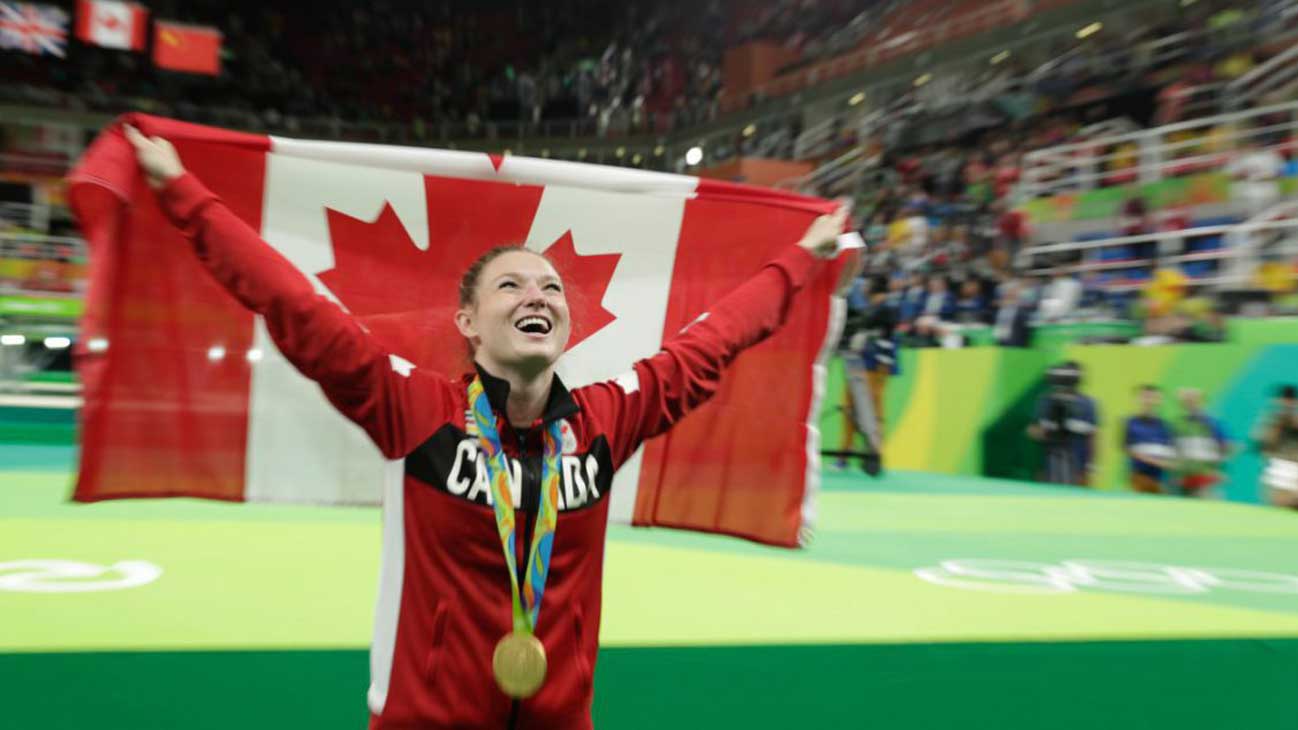As a child, Rosie MacLennan often tagged along to her older siblings’ trampoline lessons aching for her chance to shine. And shine she did. By the age of just 17, she was already the Canadian National Women’s Champion, a feat she repeated two more times. The current two-time reigning Olympic champion in the individual trampoline event as well as the reigning Pan American Games champion in the individual event, Rosie speaks with passion about dreaming like a champion as well as on body image and health. The Metro spoke to Rosie about what it was like to earn a gold medal at the Olympics for the second time:
If there was more pressure on Rosie MacLennan going into Rio, it was self-imposed.
“I guess there was some expectation and more attention, but I think the most pressure for any athlete is the internal pressure they put on themselves,” the trampolinist tells Metro.
MacLennan, 27, who won Canada’s only gold medal in London 2012, proved she was still best in her sport by defending her spot last Friday.
“I’m feeling over the moon,” she says, reflecting on her performance. Metro asked MacLennan about Team Canada’s podium run so far, sexism in the Olympic coverage, and about her own competitive spirit and training methods.
Which competitors were you keeping your eye on?
I was definitely keeping an eye on the two Chinese girls, Li Dan and He Wenna. They’ve been incredibly strong over the past decade. And then the girl from Belarus (Tatsiana Piatrenia) who won the first round — she’s been incredibly strong as well. So I guess they were my watch list.
Canadian women have been dominating the podium. Have you noticed more confidence in our athletes, or do you think it’s the result of more investment?
I don’t know necessarily what caused it but I do think there is something to building momentum. So right off the bat when you have top performances, it’s really inspiring and motivating for the rest of the team.
So for me, I watched the rugby girls the first three days and they were incredible. They performed a debut Olympic event and I was truly inspired by not only their performance but their attitude; their feelings of gratitude to be here and have the opportunity.
There has been much talk about sexism in the Olympic media coverage. Is this something the athletes are talking about, or that you have experienced?
I think a lot of the athletes competing are really just focused on the task at hand but it has been nice to see some of the athletes, (like) Adam van Koeverden speaking up and really defending…female athletes and the way that we’re covered.
One of the things about being at the Olympics is you’re actually kind of removed from the coverage. We get live feeds of the sport so a lot of the coverage is about that specifically. We’re a little bit sheltered from it at this point, but it might start some discussions back home.
If Penny Oleksiak is picked to be the flag bearer, what advice would you give to her?
To her or to whoever is picked: just really take in that moment and raise the flag high and proud and just enjoy it, embrace it and take it all in.
I think it’s an opportunity to be an ambassador for the team and be a spokesperson for the team in a sense; to help generate conversations about things that you’re passionate about.
Some coaches have called on corporate Canada to support our athletes. You’ve had sponsorship success, now working with Tide as well as P&G’s Thank You, Mom campaign. What’s important to keep in mind when you do a campaign like this?
I think it’s important to have a deeper connection. It’s more than the face value of a partnership. The reason I was so excited to work with Tide (on Small but Powerful) is because of what they’re trying to accomplish and it’s connected to something I’m really passionate about. One of my dreams and one of my goals beyond being an athlete is encouraging and facilitating that next generation of athletes — whether it’s for high performance goals or an active life, it doesn’t really matter. But the Small and Powerful campaign connected with me because they are doing something about it; they are putting money where their mouth is.
What was the hardest part about suffering a concussion last year?
I think the hardest part was being held back from something you absolutely love but I think that was also the benefit of it. Because I was held back, I realized all I wanted to do was get back on the trampoline regardless of what that meant for the Olympic journey.

